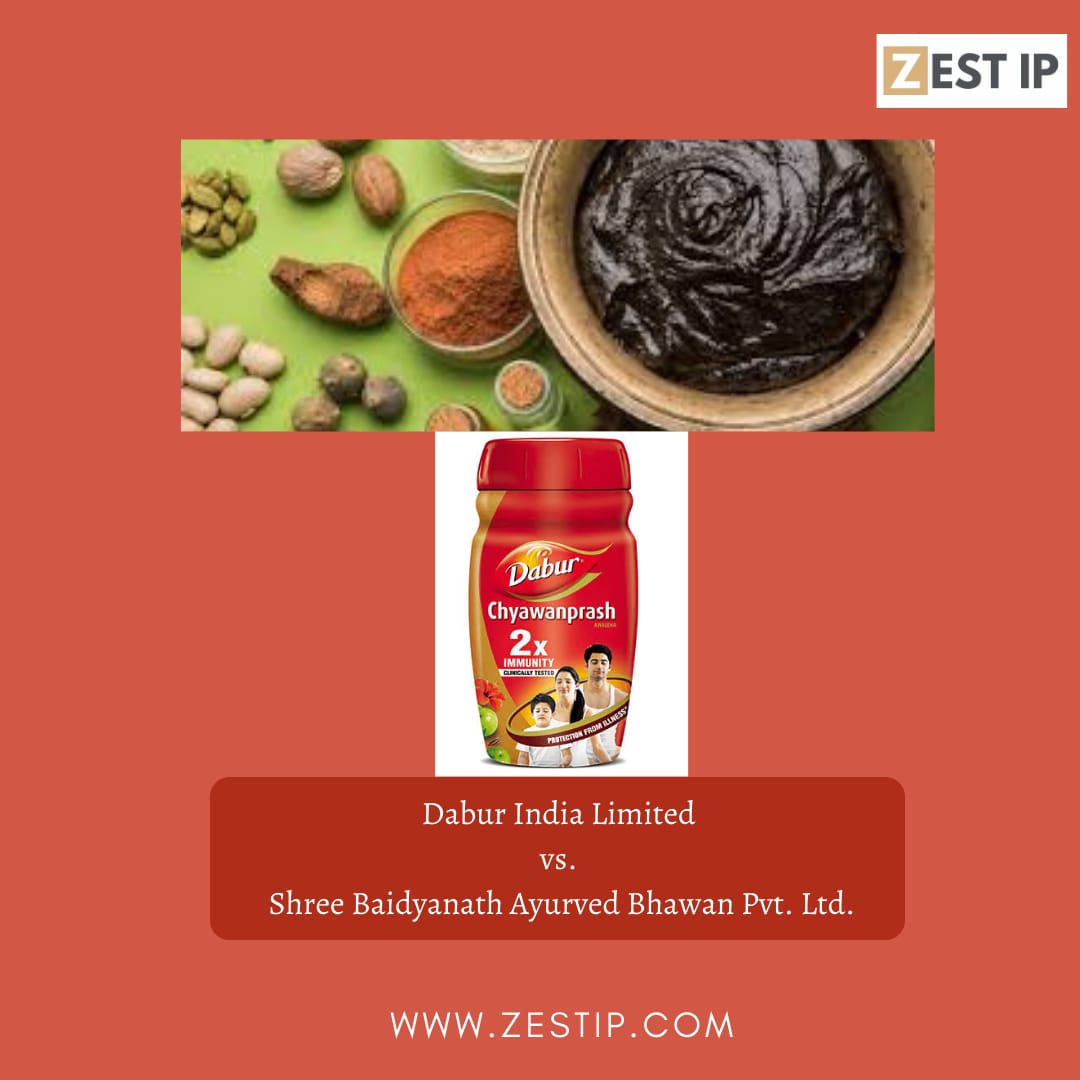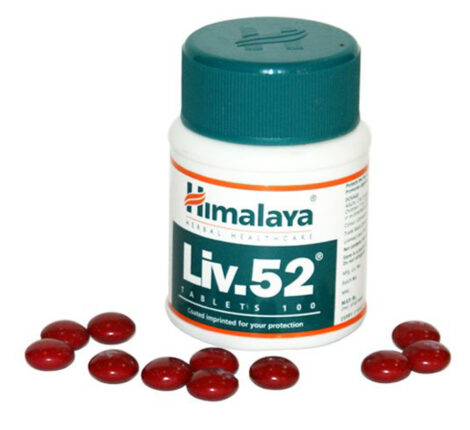Calcutta High Court restrains Baidyanath Ayurved from displaying disparaging advertisement of Dabur India Limited products
“The very statement that Chyawanprash is available in the market with ‘42 ingredients’ is a mischievous and false statement that would create confusion in the minds of the general public. The reference to ‘42 ingredients’ is an innuendo that the Chyawanprash of all other brands is an incomplete formulation and is not ‘Chyawanprash’ at all. Such a comparison is not only deleterious but a factually false statement that denigrates all other brands of Chyawanprash.”
– Calcutta High Court
INTRODUCTION
Advertising has been considered one of the most important aspects of trade and business. In the present century, the competitors and the advertisers sought to present their goods and products in the most presentable way, portraying the merits of the products with a primary attempt of influencing the public to buy the particular product. If used with a spirit of healthy competition, commercial advertising ensures the enhancement in the sale of the products, promotes market transparency, and helps maintain the balance between the prices and the quality of products. However, sometimes the advertiser lands in a dispute if he adopts unfair means of disparagement, i.e., if the advertiser compares the false and misleading statements about the goods and the services, resulting in public confusion and deceit. When such unfair means of disparagement are committed, the trademark laws are referred to grant protection to the parties affected. Section 29(8) of the Trademarks Act, 1999 explicitly states infringement of a trademark in case of disparagement in commercial advertising. The present case of Dabur India Limited vs. Shree Baidya Nath Ayurved Bhawan Private Limited,[1] revolved around the disputes between the parties concerning product disparagement and trademark infringement.
FACTS
The petitioner, namely Dabur India Limited, are the original owners and the advertisers of the product Dabur Chyawanprash. They were aggrieved by the respondents’ actions when they realized that the respondents had advertised impugned advertisements during October and November 2021 concerning its products Baidyanath Chyawanprash Special. The impugned advertisements that the defendants have published were concerning the quality of their products in which they have stated that the Chyawanprash manufactured by them has ‘52 herbs’. In contrast, its rivals have only ‘42 ingredients’ and also that the respondent’s product is made from ‘100% pure ghee’ whereas its competitors have a mixture of vegetable oil and ghee. The advertisements have been made on a timely basis, and differently in different mediums, which are:
- Firstly, they had published it on their original website (https://www.baidyanath.com/chyawanprash-special.html) and other e-commerce sites such as Amazon, Flipkart, and others.
- Secondly, they released a print advertisement in a national daily newspaper, ‘Dainik Jagran’ on October 17, 2021, further circulated for the whole month in UP.
- Thirdly, they released a print advertisement in a national daily newspaper, ‘Amar Ujala’ on November 12, 2021, and circulated it in November in UP.
- Fourthly, the next impugned advertisement was a type of L-band advertisement that was released on national television channels like Dabangg TV, which is available for viewership across all major cable networks, DTH, and online OTT platforms from November 12, 2021.
- Fifthly, they released a full-fledged video advertisement on social media on November 15, 2021, on its official YouTube channel named Baidhyanath Chyawanprash.
The acts of the respondents aggrieved the petitioners. They filed this present suit seeking an injunction and restraining the respondent from issuing, publishing, or uploading the impugned advertisements, disparaging the goodwill and reputation of the petitioner and its product Chyawanprash being sold under the trademark ‘DABUR’.
PICTORAL REPRESENTATION OF THE IMPUGNED ADVERTISEMENT:

Also read: Madras High Court grants protection to Apex Laboratories for IP infringement of ZINCOVIT
CONTENTIONS OF THE PARTIES
Arguments presented by the petitioners
The learned counsel for the petitioners made the following arguments against the respondents, which can be summarised below:
- The respondents have expressed their acceptance that the impugned advertisements are comparative to those of the plaintiffs, and such untruthful comparisons are actionable.
- The respondents have targeted the petitioners’ products, and the reasonings made by the respondents concerning the quality of the petitioners are deliberate and malicious. Additionally, the product packaging used by the respondents for their products is similar to that of the petitioners. Furthermore, the petitioners’ products are recognized widely. The impugned advertisements have been published with the mala fide intention to persuade the consumers to buy Dabur Chyawanprash and shift their focus to the products manufactured by the respondents.
- Even if there is no direct reference to ‘Dabur’, the respondents’ actions are still causing generic disparagement to the class of Chyawanprash. Thereby, the cause of action is upon the petitioners being the product’s manufacturer.
- The use of the word ‘ordinary’ in the advertisements published by the respondents is false and misleading based on two approaches. Firstly, there cannot be an ‘ordinary Chyawanprash’ as no Chyawanprash has contained only 42 essentials. It amounts to disparagement and violation of Section 3(a) of the Drugs & Cosmetic Act. Secondly, for the manufacturing of Chyawanprash, the reference is made for First Schedule to the Drugs and Cosmetics Act, 1940, and the minimum number required is 47 ingredients.
- The petitioners have further contended that unfair and deceptive advertising is not liable to be protected commercial speech covered under the ambit of Article 19 (1) (a) of the Constitution of India. Thus, the argument presented by the respondents stands impermissible.
- The respondent has misleadingly implied that the respondent’s Chyawanprash is complete, whereas another Chyawanprash is incomplete. These questions in the impugned advertisements have created doubt in the minds of the consumers, relating to whether the correct recipe has been used in petitioners’ manufactured products.
- The respondents have made false statements against the petitioners through publishing advertisements. The publication of such advertisements expressed the mala fide intention of the respondents in the way that the other Chyawanprash in the market are ‘ordinary’ or ‘deficient’ as they suffice only 42 ingredients. Also, the petitioner’s product is not manufactured as per correct text; hence is deficient and does not provide health benefits.
“A misleading advertising, as the term implies, is one that deceives, manipulates, or is likely to deceive or manipulate the consumer. These commercials have the potential to influence consumer’s purchase preference in the market and it also harms its rivals, hence, they must be used with caution. There should be a balance between the right of commercial speech and the interest of public and competitors.”
Arguments presented by the defendants
The learned counsel for the respondents, Mr. Manish Biala, had made the following arguments on the petition filed by petitioners seeking injunction:
- The defendants have stated that publication of advertisements is recognized as ‘right to commercial speech,’ covered under Article 19(1)(a) of the Constitution of India. They further stated that the restriction on publishing an advertisement would violate their fundamental rights.
- Secondly, they stated that it is well-settled law that allows the comparison of products. It is also permissible for an advertiser to proclaim that its product is the best and the implication is natural and allowed. These comparisons do not amount to disparagement offense, and the advertisement cannot be permitted.
- The plaintiffs have tried creating a monopoly in the market, which completed acts against intellectual property rights laws and abused the basic process of law. The plaintiff’s stand on restraining the respondents from advertising because the plaintiffs have a majority share in the market is irrelevant.
- The defendants in their published advertisements have stated true and correct knowledge for the consumers and public at large with all the pertaining merits of their products, containing all the necessary ingredients. Henceforth, the petitioners had prior knowledge about the same, and they were scared that such facts could question the quality of their products.
- Commercial advertising is permissible under the domain of law. In this present case, the advertisement of the respondent has not been comparative as it provides a comparison to the products of the respondents with an unnamed fictitious product.
- The defendants stated that their product had been approved as per the ayurvedic texts, and the plaintiff’s claim is entirely based on the assumption that a Chyawanprash has to have 47 ingredients as per the approved ayurvedic textbooks of Ayurveda.
- The defendants have contended that the claims made by the plaintiffs are self-contradictory. Also, the terminology and the representations made of an unnamed fictitious product in the advertisements have no reference to the products manufactured by plaintiffs, i.e., ‘Dabur Chyawanprash’.
- The defendants have further argued that the intent of the commercial advertisement of the defendants is for suggesting that the product manufactured by them is better than others. Additionally, they stated that their motive was only to impact the consumers positively and added that they had no mala fide intention to disintegrate and disparage the product manufactured by the petitioner.
Also read: Vimal Eliachi Dragged To Court Over Surrogate Advertising
ISSUES
The issue between the parties concerns the commercial advertisement published by the defendants. The question of law before the court is whether the defendants’ impugned advertisements on various national newspapers and other e-commerce sites caused disparagement to the plaintiff’s product?
COURT’S DECISION
The court laid down some fundamental principles that need to be considered while deciding on whether an offending advertisement is disparaging or is mere puffery:
- The court has the necessity of applying the reasonable man test, i.e., if a reasonable man could take the claim being made as a serious one or not.
- The courts must adopt a broader approach concerning the impugned advertisement and whether the comparison is serious.
- The comparisons must be based on truthful facts and only regarding ‘better or best.’
- The impugned advertisements have to be appropriately examined and justly. If it is examined that there is any misleading or untruthful information about the product, then that would lead to disparagement.
- The comparison of the rival products is allowed only concerning ‘puff’ or any honest trade respect. Any negative depiction of the rival product in awful taste would not be permitted.
- The parties have been restricted from committing disparagement concerning the class or genre of a product.
- One should make the comparative advertising with a positive approach, i.e., the courts can only permit the advertisements if they contain valuable information to the consumers and promote healthy competition in the market.
Henceforth, the court, while providing its clear stance on the dispute, has referred to the cases of Hindustan Unilever Limited vs. Reckitt Benckiser (India) Ltd.[2] , Dabur India Ltd vs. Emami Limited[3] and Dabur India Limited vs. Colgate Palmolive India Ltd.[4] hence delivered its pronouncement that can be summarised below:
- Firstly, the comparison made by the respondents has been classified under ‘negative comparison’ because it has presented Dabur Chyawanprash as an inferior product and that the advertisements contain false information about the petitioner’s product.
- Secondly, Article 19(1) (a) cannot cover such an advertisement as it contains false and misleading statements.
- The use of the words ‘ordinary’ in the advertisements would also include the petitioners’ products, which would affect the substantial part of the market price of the petitioners and recognize the other products to be inferior.
- The advertisements published by the respondents on the YouTube channel have portrayed the petitioner’s product in a negative light.
- The commercial advertisement has negative implications on the consumers as this would cause public deceit. One must maintain a balance between the right of commercial speech and public interest at large.
The court passed a permanent injunction order against the respondents based on the words ‘42 ingredients’ in the newspapers and other e-commerce sites. Such conduct acted as a ‘negative comparison’ for the petitioners and all the other products in the markets. The court directed the respondents to remove the words ‘42 ingredients’ from their advertisements, and then they could use only the ad. Further, the bottle shown in the advertisement shall only have the words Chyawanprash and no other word.
Also read: Pancharishta is not a generic word: Delhi High Court grants protection to Emami Limited
CONCLUSION
The Hon’ble Calcutta High court has cited that “The above case squarely applies to the present dispute because the comparison made by the defendant/respondent is specifically pointing towards deficiency of the other rival products including the petitioner’s product. Moreover, the claim made by the defendant/respondent about the number of ingredients of the rival product is false and misleading.”
Read the judgement here
[1] CS. No. 232 of 2021
[2] 2014 (2) CHN (Cal) 1
[3] 2004 (75) DRJ 356
[4] 2004 (77) DRJ 415
— Harmanpreet Kaur (Intern), Amity University, Kolkata
Disclaimer: This brief is intended to provide general guidance to the subject matter. It does not contain legal advice. For any specific advice/corrections, write to [email protected]
© ZEST IP




